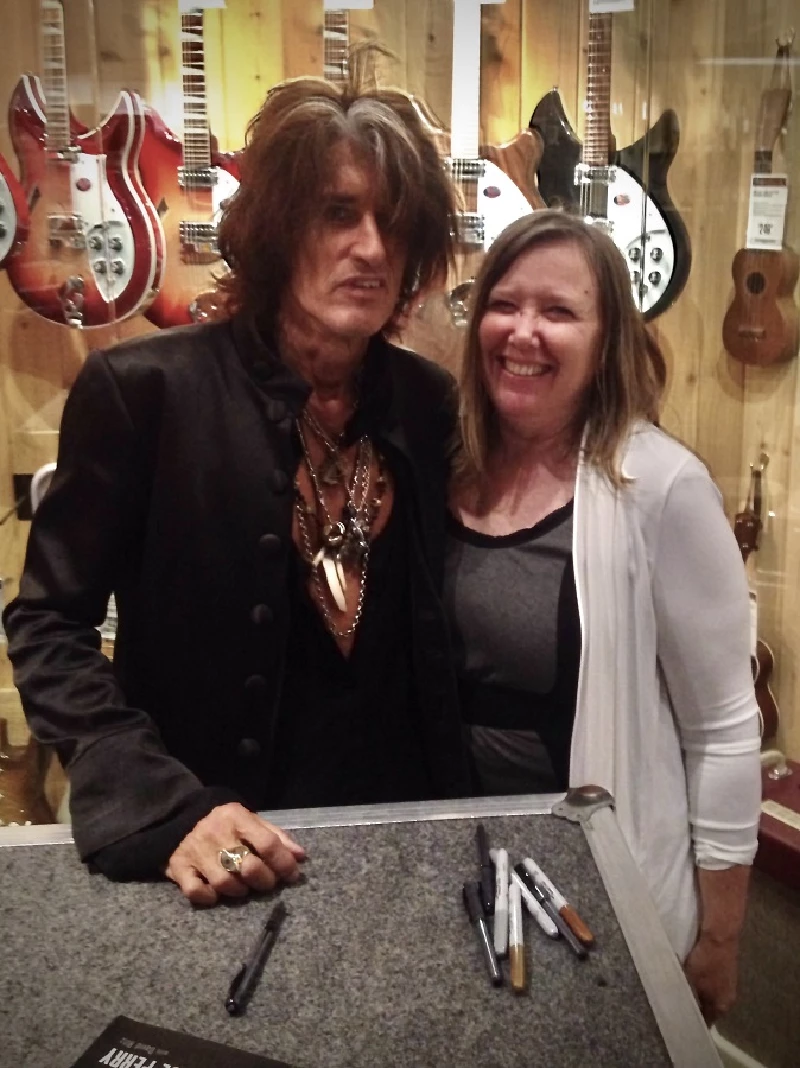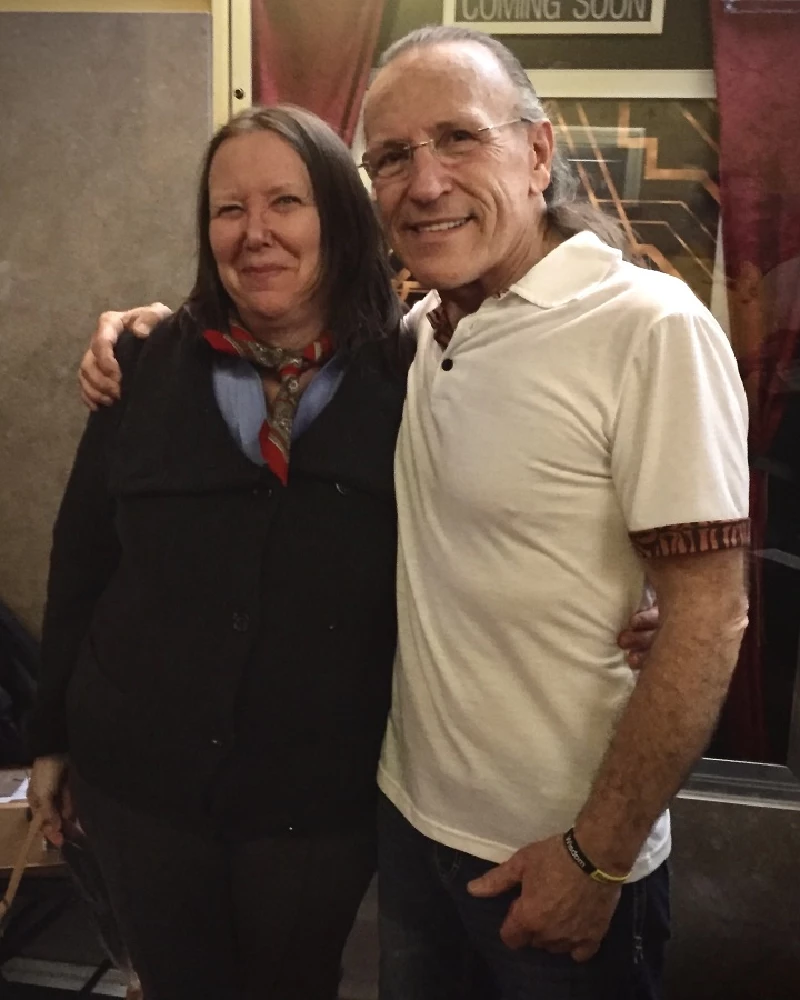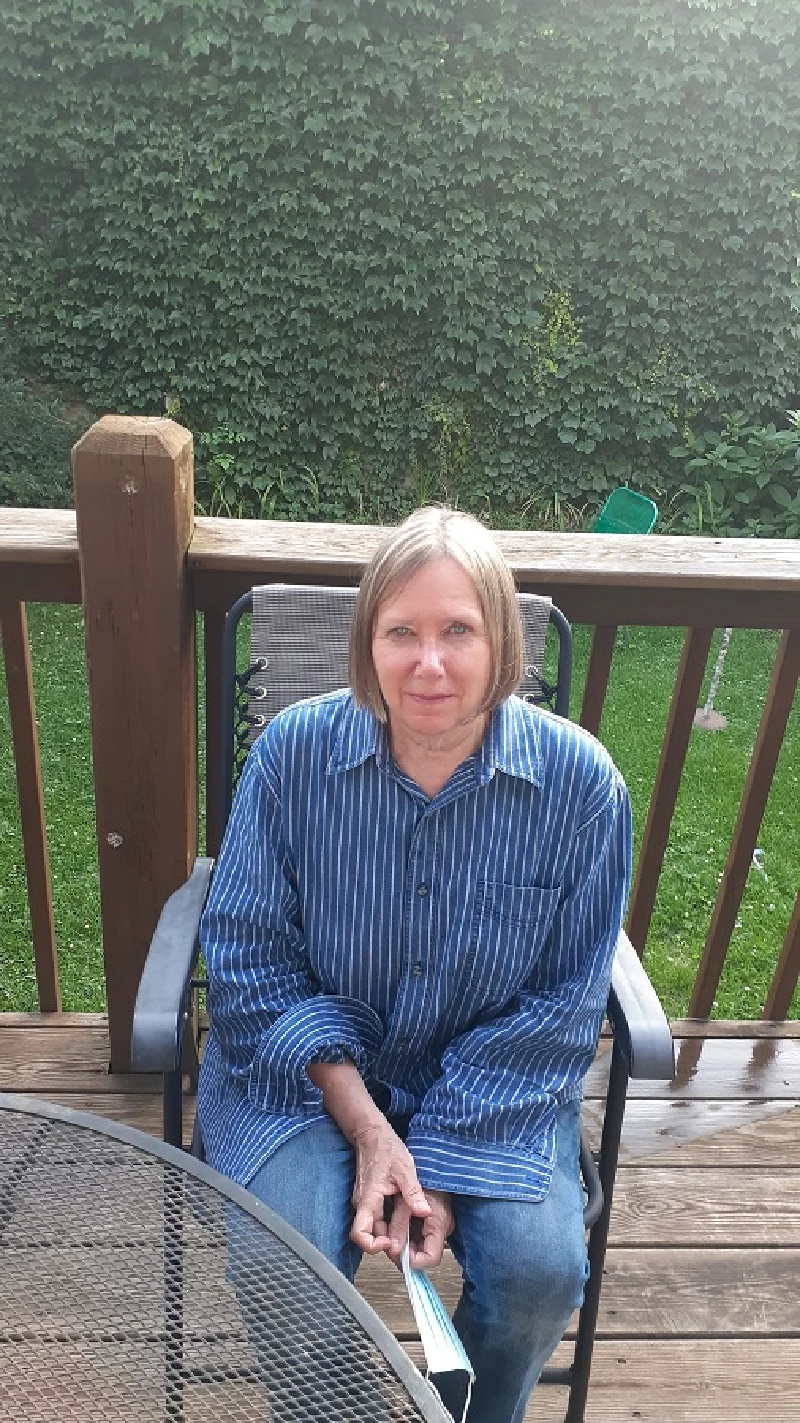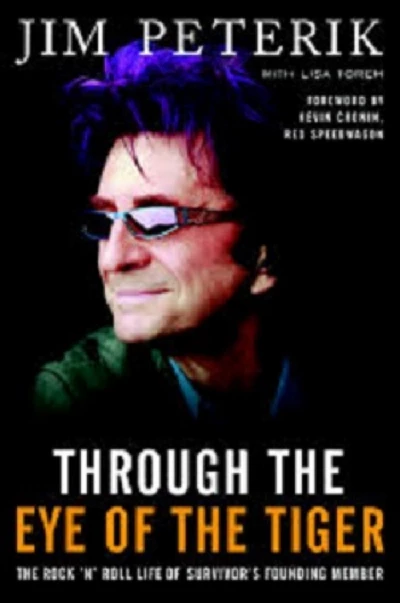Lisa Torem - A LIfe in Music
by Cila Warncke
published: 7 / 10 / 2021

intro
In her series, 'A Life in Music', in which she speaks to Pennyblackmusic writers about how music has affected and influenced them, Cila Warncke talks to our long-term American writer Lisa Torem.
It is eight o’clock in the morning in Ravenswood, the north-west neighbourhood where Chicago native Lisa Torem lives. She has chosen a Ringo tee-shirt for our interview. A Pennyblackmusic writer since 2009, Lisa has amassed a journalistic back catalogue that includes countless articles, reviews, interviews, and books including 'Through the Eye of the Tiger', with Jim Peterik (2014) and 'On Track: Tori Amos' (2021, available now in the UK). She is writing a book about Billy Joel, and one with Bowie singer Ava Cherry. In the next hour, she’ll walk us along the winding roads that brought her here. What musical culture(s) did you identify with most strongly as a young person? My dad was a piano player, a gigging musician, before he became a teacher, so piano always attracted me. I loved Jerry Lee Lewis. Later, I fell in love with British groups: The Kinks, the Stones, the Small Faces, the Moody Blues, the Beatles. I loved the melancholy chord progressions of the British groups, that dark deepness. How accessible was that music? How did you discover it? Radio was the thing. Radio was one of my best friends. It was something you could talk to your friends about, the DJs were fun, it was pretty much the culture. How has your relationship with music evolved? When I was older, I’d hang around piano bars. Piano bar people are great, they know hundreds of standards, they’re really intelligent. I developed a curiosity. I took some piano, then taught myself. I was fascinated by composition, so I’d listen to a record a hundred times and try to pick up a riff or a part of the composition. I’m not a visual person, but I pick up sound. I got a degree in elementary education with a minor in music. I took theory, classical piano, voice, music history. What are the biggest differences in your musical taste between ‘then’ and ‘now’? A lot of us tend to stick to what we like. For example, I didn’t grow up with rap, and a lot of lyrics were misogynistic, so I felt like I didn’t need it. Then I interviewed the director of a rap film and realised what the music meant to people. I thought, okay, it’s like Dylan, it’s folk music. I’d been closed minded. Doing interviews has made me more open, more curious. You have to explore a genre as much as you can before you decide you don’t like it. What attracts you to an artist/band? Some of the British boy groups were adorable, [laughs] obviously that was was an attraction. I love a good vocalist, an artist who is really flexible. Billy Joel is such a mimic, consciously or unconsciously, he can do this Ray Charles thing, or Joe Cocker, or John Lennon. He has an incredible vocal instrument that can be soft, warm or gutsy. What’s a band you used to love that makes you cringe now? There were ballad singers that, at a certain point, I realised were cliched. They were marketed because the record company thought they were nice looking. People like Frankie Avalon. Who’s an artist you came to late but now love unreservedly? The Struts. I saw them when they were first getting famous. They were an opening act so people were filtering in late, talking. The singer sounded like Freddie Mercury, very theatrical. Three gigs that meant something extra-special? 1) I’ve seen The Zombies live several times. They have such enthusiasm for singing, such exuberance for performing. They put everything into their act. 2) Psychedelic Furs – I have so much fun at their concerts. The great gravelly lead vocals and those dark minor chords I love. There is this real rebelliousness in the music. They’re always a great act. 3) I saw Alice Cooper at a reunion show in Nashville a few years ago. There were super fans there from all over the world, because the original group was playing. People were so excited, the band was so excited. They looked great. There was so much energy. When and how did you get involved with Pennyblackmusic? I wanted to be a music writer and was writing for some other outlets. I was surfing the internet and found some interesting articles, they were long-form, deep, sensitive. I emailed at 3 AM and right away, John [Clarkson] replied. I was jumping up and down. Later, I found out it wasn’t 3 AM [in Scotland]. That was my introduction. I started writing reviews, interviews, doing about four an issue. I went to London a few times and met some of the writers. How would you characterise Pennyblackmusic? It’s an equal opportunity celebration of the every man artist and the legendary artist. The writer has room to explore the creative process, without some directive like ‘you can only do 250 words and you have to advertise soft soap’. There is an effort to dig into the subject matter, which isn’t always the case. There isn’t a commercial aspect or pressure to get readers. You’re in a community of people who are very helpful. John knows his writers, he nurtures them, he takes time to build that community. The first time I did a DVD review it took me like 11 hours. He had a lot of patience. Why does music writing matter? As a music writer, I help build communities and dialogues. There have been times in my life it’s been hard to get out. I had kids, I couldn’t afford a sitter, couldn’t afford a ticket. There are people who love music, who can’t get out to hear it. A music writer is a messenger. A music writer can’t just be a fan, they have work to do. We offer a bird’s eye view of an event so the fan can enjoy it. Tell us about a memorable Pennyblack interview? Colin Blunstone, lead singer of The Zombies. He is one of my favourite people to speak with. John likes writers to do second interviews, third interviews, so I’ve interviewed him a number of times. Colin is very in the moment, honest, three-dimensional. He always has something significant to say. He’s aware of inflection, aware if people are in a hurry, if they’re stressed. It’s a treat to speak to a person of royalty like that. How has your experience of music changed over the past 18 months? Things have slowed down. I’m not going to concerts. I’ve been doing a lot of writing and research, which I love. I’ve been preoccupied with that, trying to better my craft. Describe an image that encapsulates your life in music A photographer friend took a picture of me with Joe Perry [of Aerosmith], at a guitar workshop in the suburbs. He was so sweet. It was a nice moment to pose with him. When you see a person’s entire life, instead of that moment on stage, you develop empathy for what they’ve come through. Standing there with him it was like, these are real people. Someone who has survived so much, given so much, put so much into their creativity. What are your vocations outside of Pennyblackmusic? I’m a former beat reporter, saloon singer, keyboard player, composer, playwright. I taught English for many years, to people from all over the world: refugees, immigrants, people who had to learn survival English, or those at university who needed academic English. I’ve done some songwriting, including a children’s project with songs in different languages. I was always doing something in writing. When I had my first daughter, I wrote a piece and sent it to a parenting editor who said, ‘thanks for the humorous anecdotal piece, do you have any more?’ I was like, ‘is that what that is?’ That was my first published piece, so I went from parenting writing to reporting and finally to music. Take 5… 1. The first song you remember? The Beatles ‘Things We Said Today’ – beautiful harmonies. I love their songs but this one really hit me. It is a reminiscent kind of song. 2. A wedding song? The Zombies ‘This Will Be Our Year.’ It’s upbeat but not too sappy, not too sugary. It could be for any couple. 3. A funeral song? Samuel Barber ‘Adagio for Strings’. I just read a Billy Joel piece so I’m stealing from him. It stops you in your tracks, it’s beautiful and heartbreaking – you can see a lifetime in it. 4. The artist you’d most like to be? McCartney. He’s the consummate musician. Everything he touches is gold. I saw him do ‘Blackbird’ once and there were people talking. He stood there and said, calmly, ‘do you know what I’ve accomplished?’ I was like, okay, Paul, you get to do that. 5. The song you never, never get tired of? The Zombies ‘She’s Not There’. I love the organ-y riff, Colin’s voice is sexy and breathy. Musically, it offers so much. It’s beatnik-y, sort of 50s, finger-snapping stuff. It sets you off into a misty past. Photographs by Philamonjaro www.philamonjaro.com
Also In A Life in Music
Article Links:-
https://pennyblackmusic.co.uk/Home/Details?id=26493https://pennyblackmusic.co.uk/Home/Details?id=26807
https://pennyblackmusic.co.uk/Home/Details?id=17175
https://pennyblackmusic.co.uk/Home/Details?id=24911
Play in YouTube:-
Picture Gallery:-


interviews |
|
Interview (2015) |

|
| John Clarkson talks to our own writer Lisa Torem about ghost writing music legend, Survivor star and 'Eye of the Tiger' co-writer Jim Peterik's new autobiography |
most viewed articles
current edition
Carl Ewens - David Bowie 1964 to 1982 On Track: Every Album, Every SongJohn McKay - Interview
Editorial - July 2025
Billie Eilish - O2 Arena, London, 10/7/2025
Hothouse Flowers - Photoscapes
Bathers - Photoscapes 2
Bathers - Photoscapes 1
Visor Fest - Valencia, Spain, 26/9/2025...27/9/2025
Cleo Laine - 1927-2025
Simian Life - Interview
previous editions
Heavenly - P.U.N.K. Girl EPBeautiful South - Ten Songs That Made Me Love...
Trudie Myerscough-Harris - Interview
Pixies - Ten Songs That Made Me Love...
Boomtown Rats - Ten Songs That Made Me Love....
Fall - Hex Enduction Hour
Sam Brown - Interview Part 2
Doris Brendel - Interview
Donovan - Ten Songs That Made Me Love...
Blues and Gospel Train - Manchester, 7th May 1964
most viewed reviews
current edition
Sick Man of Europe - The Sick Man of EuropeAmy Macdonald - Is This What You've Been Waiting For?
Phew, Erika Kobayashi,, Dieter Moebius - Radium Girls
Alice Cooper - The Revenge of Alice Cooper
Blueboy - 2
Lucy Spraggan - Other Sides of the Moon
Cynthia Erivo - I Forgive You
Davey Woodward - Mumbo in the Jumbo
Philip Jeays - Victoria
Bush - I Beat Loneliness
Pennyblackmusic Regular Contributors
Adrian Janes
Amanda J. Window
Andrew Twambley
Anthony Dhanendran
Benjamin Howarth
Cila Warncke
Daniel Cressey
Darren Aston
Dastardly
Dave Goodwin
Denzil Watson
Dominic B. Simpson
Eoghan Lyng
Fiona Hutchings
Harry Sherriff
Helen Tipping
Jamie Rowland
John Clarkson
Julie Cruickshank
Kimberly Bright
Lisa Torem
Maarten Schiethart